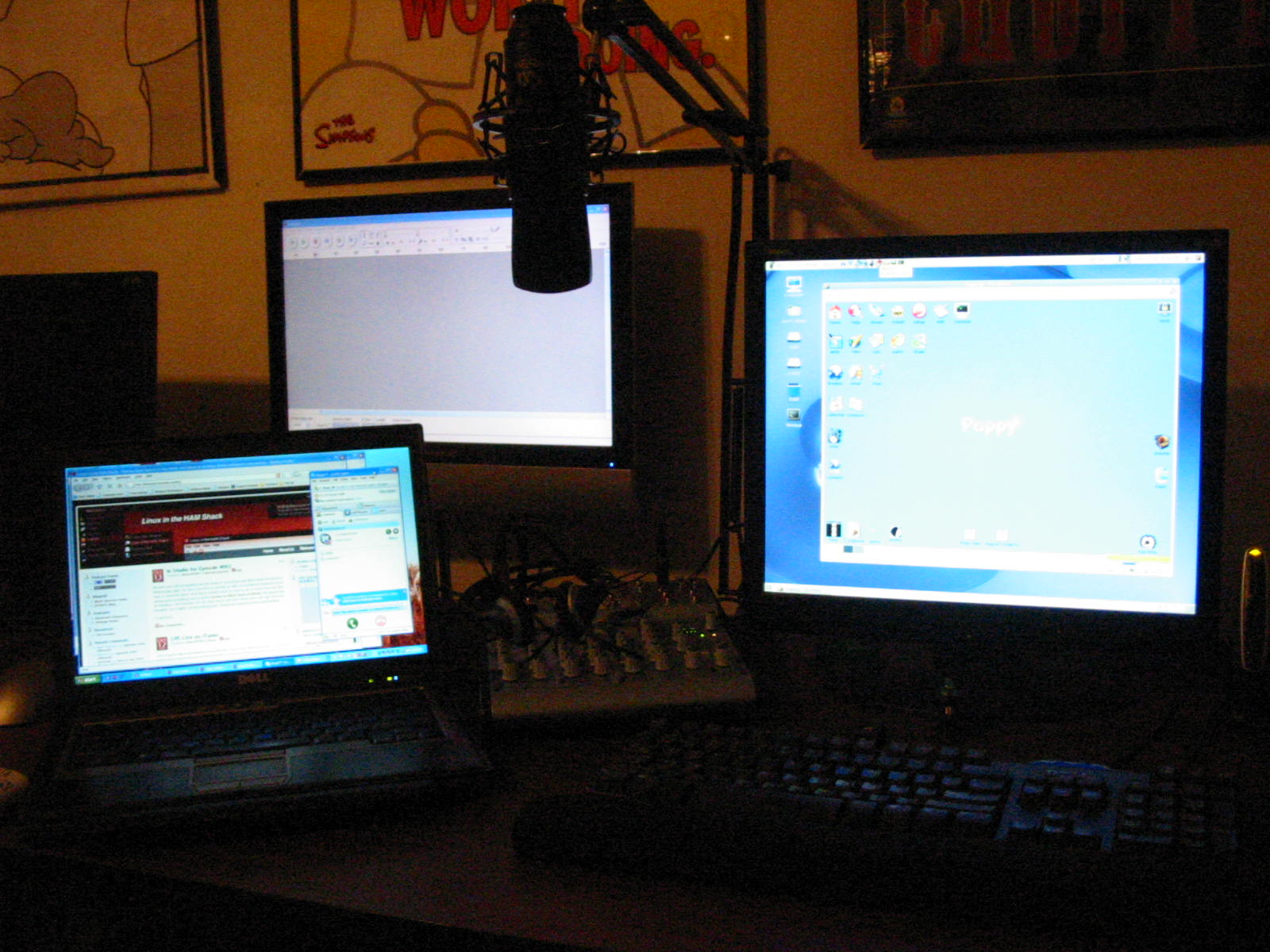I was getting set up to record the second episode of LHS tonight and thought it might be interesting for folks to see what my recording setup is like. Plus it seemed like an interesting picture to take for posterity.
To the left is a Dell Latitude D620 laptop running Windows XP. I'm using it because multiple recording sources in the Linux kernel is a bit problematic right now. We're using Skype to make the voice connection between Richard and myself. Connected externally to the laptop is a Polaroid 21" LCD HDTV which I'm using as a second monitor. Audacity is the software being used for the recording. The TV allows me to keep it visible but out of the way so I can focus on the other two screens.
In the middle is the mixing console, an Alesis Multimix 8 USB. In the foreground is my microphone, a Marshall MXL V63M condenser. It will probably be replaced at some point because the high end and midrange are a little weak and the response is not very good. But for an inexpensive condenser it's not bad.
On the right is the screen for my Dell Poweredge 400SC. It's a server computer that I'm using as a client machine. It's running Debian Sid. For the recording of Episode #002, I was using the free VMware server to have a copy of Puppy Linux (Digipup) and Knoppix (Harv's Hamshack Hack) running simultaneously. Thanks for taking a peek behind the scenes with me. On to recording the podcast.

 Hello, ladies and gentlemen! It's time for another action filled episode of Linux in the Ham Shack. Topics for this episode include, women in technology, the Amateur Radio Parity Act of 2015, photo editors (of all things), databases for Linux hardware compatibility, ham radio-specific Linux distributions and much more. Thanks for spending an hour of your day with us. We appreciate all of our listeners. Also, don't forget to send us feedback. We'd love to hear from you.
Hello, ladies and gentlemen! It's time for another action filled episode of Linux in the Ham Shack. Topics for this episode include, women in technology, the Amateur Radio Parity Act of 2015, photo editors (of all things), databases for Linux hardware compatibility, ham radio-specific Linux distributions and much more. Thanks for spending an hour of your day with us. We appreciate all of our listeners. Also, don't forget to send us feedback. We'd love to hear from you.
